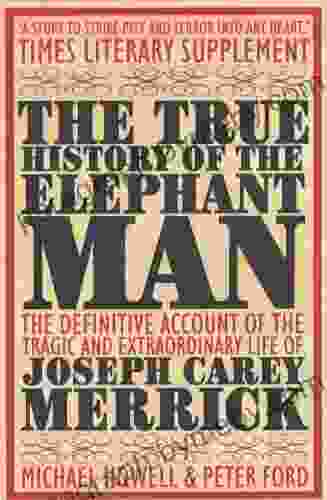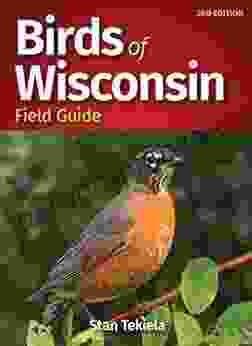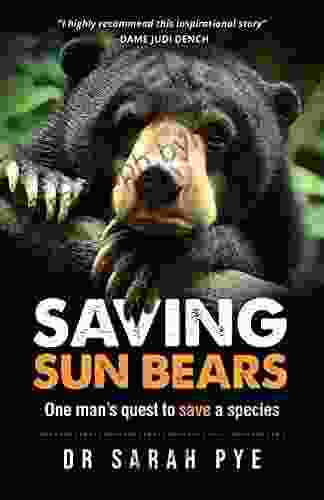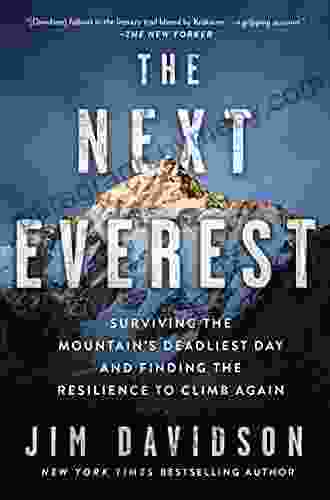One Man's Quest to Save Species

4.3 out of 5
| Language | : | English |
| File size | : | 5940 KB |
| Text-to-Speech | : | Enabled |
| Screen Reader | : | Supported |
| Enhanced typesetting | : | Enabled |
| Word Wise | : | Enabled |
| Print length | : | 264 pages |
| Lending | : | Enabled |
In a world where species are disappearing at an alarming rate, one man has dedicated his life to fighting for their survival. George Archibald, the founder of the International Crane Foundation, has spent decades traveling the globe, working to protect cranes and other endangered birds.
Archibald's journey began in the early 1960s, when he witnessed the decline of the whooping crane population. At the time, there were only about 50 whooping cranes left in the wild. Archibald was determined to save this magnificent bird from extinction, and he founded the International Crane Foundation in 1973.
Over the years, Archibald and his team have worked tirelessly to protect cranes and other endangered birds. They have established captive breeding programs, conducted research, and worked to educate the public about the importance of conservation. Thanks to their efforts, the whooping crane population has rebounded to over 800 birds, and other endangered species, such as the Siberian crane and the black-necked crane, have also benefited from their work.
Archibald's work is an inspiration to us all. He has shown that one person can make a difference in the fight to save endangered species. His story is a reminder that we all have a responsibility to protect the planet and its wildlife.
A Lifetime of Dedication
George Archibald was born in 1938 in New York City. He developed a love of birds at a young age, and he spent his childhood exploring the marshes and woodlands of his hometown. After graduating from high school, Archibald attended Cornell University, where he studied ornithology. After college, Archibald worked as a research associate at the Patuxent Wildlife Research Center in Maryland. It was there that he first became involved in the conservation of endangered species.
In 1965, Archibald was hired by the National Audubon Society to lead a project to protect the whooping crane. At the time, there were only about 50 whooping cranes left in the wild, and the species was on the brink of extinction. Archibald's team developed a captive breeding program and worked to reintroduce whooping cranes to their former habitat.
Archibald's work with the whooping crane was a success, and the population of this magnificent bird has rebounded to over 800 birds. Archibald's success with the whooping crane led him to found the International Crane Foundation in 1973. The ICF is a non-profit organization dedicated to the conservation of cranes and other endangered birds.
Over the years, the ICF has worked to protect a variety of endangered bird species, including the Siberian crane, the black-necked crane, and the hooded crane. The ICF has also established a number of captive breeding programs and has worked to educate the public about the importance of conservation.
Archibald's work has been recognized with numerous awards, including the Audubon Medal, the National Medal of Science, and the Tyler Prize for Environmental Achievement. He is a Fellow of the American Ornithological Society and the Royal Society for the Protection of Birds.
The Importance of Conservation
The work of George Archibald and the International Crane Foundation is essential to the conservation of endangered species. As human populations continue to grow and our impact on the environment increases, more and more species are at risk of extinction. The ICF is working to protect these species and ensure their survival for future generations.
There are many ways that we can all help to support the conservation of endangered species. We can donate to organizations like the ICF, volunteer our time, and educate ourselves about the importance of conservation. We can also make choices in our daily lives that will help to protect the environment, such as reducing our energy consumption and recycling.
By working together, we can create a world where all species can thrive.
4.3 out of 5
| Language | : | English |
| File size | : | 5940 KB |
| Text-to-Speech | : | Enabled |
| Screen Reader | : | Supported |
| Enhanced typesetting | : | Enabled |
| Word Wise | : | Enabled |
| Print length | : | 264 pages |
| Lending | : | Enabled |
Do you want to contribute by writing guest posts on this blog?
Please contact us and send us a resume of previous articles that you have written.
 Book
Book Novel
Novel Page
Page Chapter
Chapter Text
Text Story
Story Genre
Genre Reader
Reader Library
Library Paperback
Paperback E-book
E-book Magazine
Magazine Newspaper
Newspaper Paragraph
Paragraph Sentence
Sentence Bookmark
Bookmark Shelf
Shelf Glossary
Glossary Bibliography
Bibliography Foreword
Foreword Preface
Preface Synopsis
Synopsis Annotation
Annotation Footnote
Footnote Manuscript
Manuscript Scroll
Scroll Codex
Codex Tome
Tome Bestseller
Bestseller Classics
Classics Library card
Library card Narrative
Narrative Biography
Biography Autobiography
Autobiography Memoir
Memoir Reference
Reference Encyclopedia
Encyclopedia Jeanne Bender
Jeanne Bender Lynn Brittney
Lynn Brittney Jeff Corwin
Jeff Corwin Jenny Kales
Jenny Kales John Conroy
John Conroy James Patterson
James Patterson Jeffrey Frank
Jeffrey Frank Jean Van T Hul
Jean Van T Hul Kevin Pereau
Kevin Pereau Jean Michel Cousteau
Jean Michel Cousteau Jean Liedloff
Jean Liedloff Kay Xander Mellish
Kay Xander Mellish Warren G Harris
Warren G Harris Jen Carter
Jen Carter Norman H Finkelstein
Norman H Finkelstein Jennifer Lapidus
Jennifer Lapidus Shonda Buchanan
Shonda Buchanan Jessie Cooke
Jessie Cooke John Masefield
John Masefield Jen Rose Smith
Jen Rose Smith
Light bulbAdvertise smarter! Our strategic ad space ensures maximum exposure. Reserve your spot today!
 Fredrick CoxFollow ·10.5k
Fredrick CoxFollow ·10.5k Guy PowellFollow ·16.6k
Guy PowellFollow ·16.6k Herman MelvilleFollow ·6.2k
Herman MelvilleFollow ·6.2k Danny SimmonsFollow ·5.6k
Danny SimmonsFollow ·5.6k Ken SimmonsFollow ·13.6k
Ken SimmonsFollow ·13.6k Diego BlairFollow ·11.7k
Diego BlairFollow ·11.7k Ira CoxFollow ·8.8k
Ira CoxFollow ·8.8k Dan BrownFollow ·9.4k
Dan BrownFollow ·9.4k

 Jeremy Mitchell
Jeremy MitchellUnveiling the Truth: The Captivating Saga of The Elephant...
Embark on a poignant journey through the...

 Marvin Hayes
Marvin HayesThe Day The World Came To Town: A Heartwarming Tale of a...
In the quaint...

 Hugh Bell
Hugh BellExplore the Avian Treasures of Wisconsin: A Review of...
Unveiling the Secrets of...
4.3 out of 5
| Language | : | English |
| File size | : | 5940 KB |
| Text-to-Speech | : | Enabled |
| Screen Reader | : | Supported |
| Enhanced typesetting | : | Enabled |
| Word Wise | : | Enabled |
| Print length | : | 264 pages |
| Lending | : | Enabled |

















